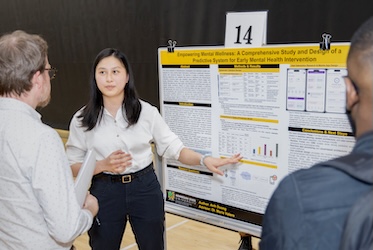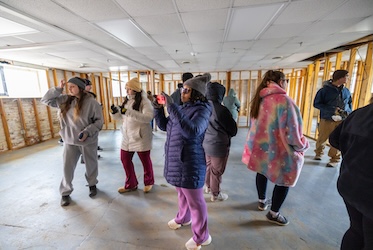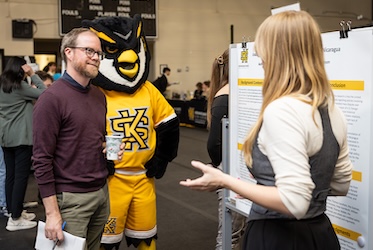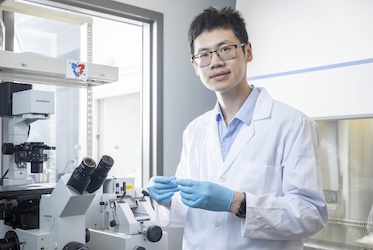
Kennesaw State Engineering Professor to Showcase Research in Machine Learning
KENNESAW, Ga. | Apr 13, 2021

Kennesaw State University’s Office of Research is hosting a one-hour web show every other Friday at 4 p.m. to showcase the varied research being conducted by KSU faculty members. “Research with Relevance” spotlights Kennesaw State researchers in a live interview followed by an interactive question-and-answer session with the virtual audience.
This week’s episode features Sylvia Bhattacharya, assistant professor of electrical engineering technology in the Southern Polytechnic College of Engineering and Engineering Technology. She will discuss her U.S. Army-funded research in which she studies the behaviors of drivers and passengers in autonomous vehicles. Prior to the presentation, she answered a few questions about her interest in research and its benefits to students.
How did you first get involved in this field of research?
My research career started in India during my undergraduate study. While studying biomedical engineering, I became extremely curious about bio signal processing and started working as an undergrad researcher at the Indian Institute of Technology. This led me to pursue my graduate studies and research in the U.S. where I started working in the area of brain computer interface.
Who has influenced you, either as an instructor or as a researcher?
The first person who influenced me as a researcher was my master’s thesis advisor, Dr. Rami Haddad at Georgia Southern University. The second person who influenced me was my Ph.D. advisor, Dr. Shonda Bernadin at Florida State University. She is a fantastic woman and my role model. She not only guided me in research, but also influenced me to launch outreach activities to motivate and bring more women into STEM.
What was the defining (or ‘aha’) moment when you realized this is what you wanted to do?
There is a difference in realizing what you want to do versus what you end up doing. As researchers, we sometimes end up changing our research trajectory due to lack of funding or support. I am extremely lucky that I am funded by the U.S. Army in the same area that I was conducting research in for my Ph.D. Therefore, my “aha” moment came on August 26, 2020, when I received the notification of funding from the Army.
In what ways has KSU supported your research?
KSU has supported me by providing a collaborative environment, good infrastructure to develop my research lab and professional opportunities like conference travel and memberships. KSU also provided a balanced teaching-research schedule so that we can spend sufficient time in proposal drafting, publications, etc.
How are you involving students in your research? How have you seen students benefit from being involved in your research efforts?
I have a very diverse group of students in my research. I have undergraduates, master’s and Ph.D. researchers in my lab with both men and women represented. I have seen my students successfully publish their work at IEEE conferences. They are getting direct mentorship from researchers from top industries like Google and expert researchers from the Army Research Laboratory. This is an excellent opportunity to network with experts in the field and work on cutting edge research projects.
What do you hope students learn from you in the classroom?
I am extremely supportive of hands-on projects and most of my classes involve extensive project work. Students in my class not only learn theoretical principles but also learn practical application of the coursework. I believe it’s very important for students to know what concepts will be important from the class for professional life in the future.
Tune in on Friday, April 16 at 4 p.m. to hear Sylvia Bhattacharya talk about her research and answer your questions. Click here for more information.
Related Stories

Passions spark innovation at Kennesaw State Symposium of Student Scholars

Kennesaw State architecture, engineering students reimagine Asheville's devastated River Arts District

Kennesaw State students to present research at Symposium of Student Scholars

KSU researcher harnessing digital twin technology to improve heart care
A leader in innovative teaching and learning, Kennesaw State University offers undergraduate, graduate, and doctoral degrees to its more than 47,000 students. Kennesaw State is a member of the University System of Georgia with 11 academic colleges. The university’s vibrant campus culture, diverse population, strong global ties, and entrepreneurial spirit draw students from throughout the country and the world. Kennesaw State is a Carnegie-designated doctoral research institution (R2), placing it among an elite group of only 8 percent of U.S. colleges and universities with an R1 or R2 status. For more information, visit kennesaw.edu.















